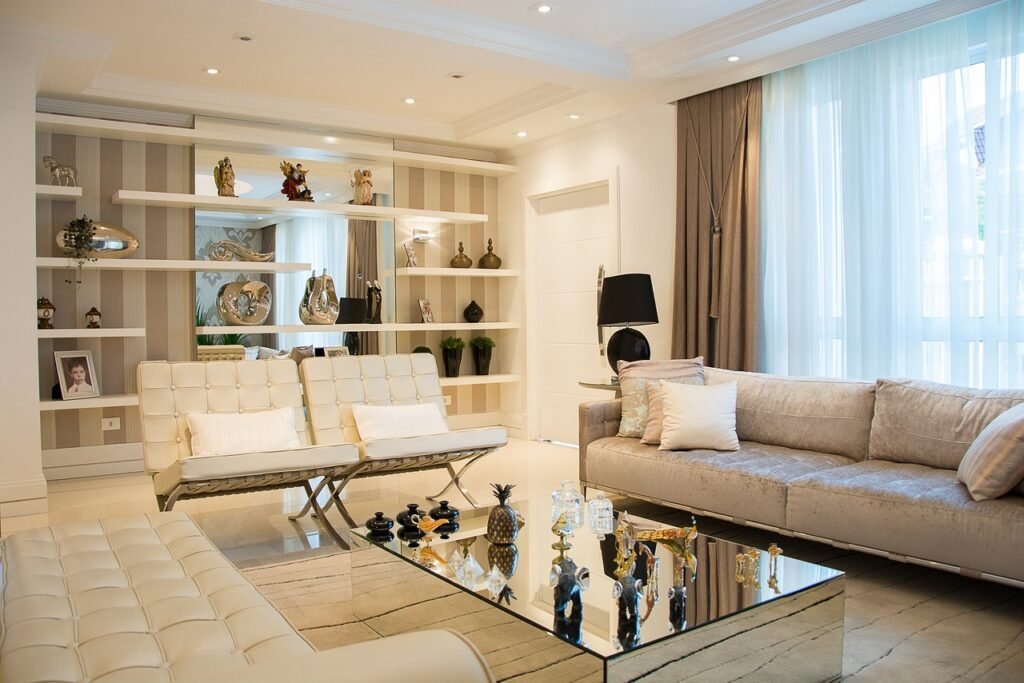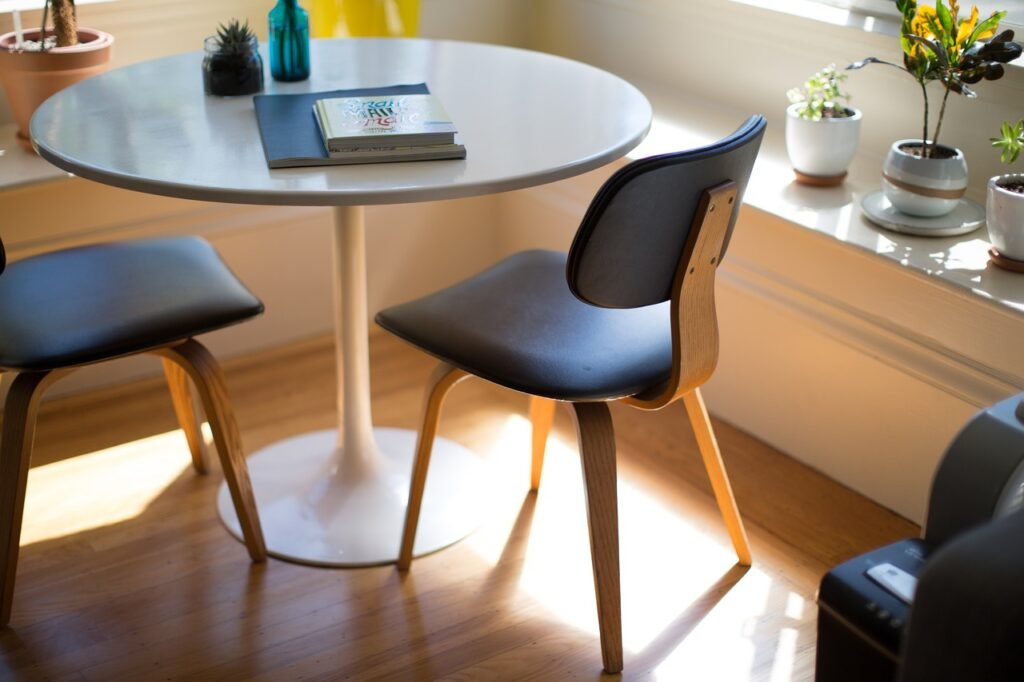Imagine transforming your living room with a charming and unique centerpiece that not only adds a touch of rustic flair but also serves as a functional coffee table. Look no further because we have just the project for you! In this article, we will guide you through the process of creating your very own rustic crate coffee table. By the end, you’ll have a beautiful piece of furniture that not only complements your decor but also showcases your creativity and DIY skills. So, grab your tools and get ready to embark on a fun and rewarding project!
Choosing the Right Crate
When it comes to making a rustic crate coffee table, the first step is to choose the right crate. There are a few factors you should consider before making your selection.
Measurements and dimensions
Begin by measuring the space where you plan to place your coffee table. This will give you an idea of the size of the crate you should look for. Choose a crate that fits comfortably in the designated area without overwhelming the space or appearing too small.
Type of wood
The type of wood used for the crate will greatly influence the overall look and durability of your coffee table. Opt for crates made from sturdy, solid wood such as oak or pine. These types of wood not only provide a natural and rustic charm but also ensure the longevity of your project.
Condition of the crate
Inspect the condition of the crate you are considering. Look for any signs of damage, such as cracked or rotten wood, as this will impact the stability and aesthetic appeal of your coffee table. It is best to choose a crate in good condition, as it will save you time and effort in the long run.
Preparing the Crate
Once you have chosen the perfect crate, it’s time to prepare it for the transformation into a coffee table. This involves sanding the crate and repairing any damages or loose pieces.
Sanding the crate
Using sandpaper or an electric sander, carefully sand all surfaces of the crate. This will remove any rough edges or splinters and create a smooth and even texture for the upcoming staining or painting process. Sanding is an essential step to ensure the best finish for your coffee table.
Repairing any damages or loose pieces
Inspect the crate for any damages or loose pieces, such as nails or screws. Gently remove any loose pieces and replace them if necessary. If there are any cracks or splits in the wood, use wood filler to repair them. It is important to fix these issues before moving forward to ensure the structural integrity of the coffee table.

This image is property of pixabay.com.
Staining or Painting the Crate
Now that your crate is prepped and ready, it’s time to decide whether you want to stain or paint it. Both options can transform the crate into a beautiful and unique coffee table to suit your personal style.
Selecting the right stain or paint color
Consider the overall aesthetic you want to achieve for your coffee table. Staining the crate will enhance the natural beauty of the wood and create a warm, rustic look. You can choose from various stain colors, such as oak, mahogany, or walnut, depending on your preference. On the other hand, painting the crate provides an opportunity to add a pop of color and personalize your coffee table. Select a paint color that complements your existing decor or creates a statement piece in your space.
Preparing the crate for stain or paint application
Before applying the stain or paint, ensure that the crate is clean and free from any dust or debris. Use a damp cloth to wipe down all surfaces and allow them to dry completely. If you are staining the crate, consider using a wood conditioner to prime the wood and enhance the stain’s absorption. For painting, use a high-quality primer to provide a smooth base for the paint color.
Applying the stain or paint
Follow the instructions on the stain or paint can to apply the product evenly onto the crate. Use a brush or a roller, depending on the desired finish. Apply multiple coats if necessary, allowing each coat to dry completely before adding the next. Always work in a well-ventilated area and wear appropriate protective gear, such as gloves and a mask, to ensure your safety.
Creating the Tabletop
The tabletop is an essential component of your crate coffee table as it provides a functional surface for placing beverages, books, or decor items. Here’s how you can create the perfect tabletop for your coffee table.
Choosing the tabletop material
Consider the style and durability you want for your tabletop. Some popular choices for a rustic crate coffee table include reclaimed wood, butcher block, or even a glass top. Each material has its own unique characteristics, so choose one that fits your vision and complements the crate.
Measuring and cutting the material
Measure the dimensions of your crate to determine the size of the tabletop you will need. Ensure that the material you choose is large enough to cover the entire top surface of the crate. Use a saw or appropriate cutting tool to carefully cut the material to the desired size. Double-check your measurements before making any cuts to avoid any mistakes or wasted materials.
Sanding the edges
Just like with the crate, sand the edges of the tabletop material to create a smooth and polished finish. This step is crucial for both aesthetic reasons and to prevent any splintering or rough edges. Take your time to ensure all edges are sanded evenly.
Applying a protective finish
To protect your tabletop from spills and stains, apply a protective finish such as polyurethane or varnish. Choose a finish that matches the desired look of your coffee table. Apply multiple coats, allowing each coat to dry completely before adding the next. This will provide a durable and long-lasting surface for your tabletop.

This image is property of pixabay.com.
Attaching the Tabletop
Now that you have your crate and tabletop ready, it’s time to attach the tabletop securely to the crate. Follow these steps to ensure a stable and sturdy connection.
Determining placement
Set the tabletop on the crate and determine the desired placement. Ensure that it is centered and aligns properly with the crate’s edges. Take a step back and visually ensure that the combination of crate and tabletop looks balanced and aesthetically pleasing.
Removing any existing hardware
If your crate has any existing hardware, such as handles or hinges, remove them carefully to ensure a flush connection between the crate and the tabletop.
Attaching the tabletop to the crate
Using screws or nails, attach the tabletop to the crate by securing the material through the underside of the crate. Make sure to position the screws or nails evenly along the edges of the crate to distribute the weight and ensure a secure connection. Use a drill or hammer, depending on the type of fastener you choose. Be cautious not to overtighten and damage the wood.
Adding Legs or Casters
Adding legs or casters to your crate coffee table can elevate its functionality and style. Here’s how you can do it:
Selecting leg or caster styles
Consider the overall aesthetic of your coffee table and choose leg or caster styles that complement it. Options include tapered legs for a mid-century modern look, hairpin legs for an industrial vibe, or traditional furniture legs for a classic touch. Caster styles can range from vintage-inspired to sleek and modern.
Measuring and attaching the legs or casters
Measure the height and positioning of the legs or casters based on your desired table height and style. Screw or nail them into the underside corners of the crate, ensuring they are securely attached. Take extra care to align them properly for stability. If using casters, make sure they have appropriate locking mechanisms to prevent your table from rolling unintentionally.

This image is property of pixabay.com.
Adding Decorative Elements
To add more charm and personalization to your crate coffee table, consider incorporating decorative elements. Here are a few ideas to get you started:
Adding handles or pulls
Attach decorative handles or pulls to the sides of the crate for a more functional and stylish touch. Choose handles that match the overall design of your coffee table or opt for unique and eye-catching designs to make a statement.
Applying decorative hardware or accents
Consider adding decorative hardware, such as corner brackets or metal accents, to enhance the rustic charm of your table. These small details can make a big difference in transforming your crate coffee table into a unique and customized piece.
Finishing Touches and Finishing
Once the main construction is complete, it’s time to add the finishing touches to your crate coffee table. These final steps ensure that your table is ready for use and looks its best.
Cleaning and polishing the table
Give your coffee table a thorough cleaning, removing any dust or debris that may have accumulated during the construction process. Use a damp cloth or appropriate wood cleaner to wipe down all surfaces. Polish the table with a suitable wood polish or wax to enhance its natural beauty.
Applying a protective coat
To protect your coffee table from daily wear and tear, apply a protective coat such as polyurethane or lacquer. Follow the instructions on the product to apply an even and durable coat. Allow it to dry completely before using the table.
Final inspections and touch-ups
Take a few moments to inspect your finished crate coffee table for any imperfections or areas that may need touch-ups. Look for any loose screws, uneven surfaces, or paint/stain drips. Make any necessary corrections to ensure the table is in perfect condition.
Styling and Decorating the Table
Now that your crate coffee table is complete, it’s time to style and decorate it to fit your desired design aesthetic. Consider these tips to make your table a standout piece in your space:
Considering the overall design style
Think about the overall style of your room and how you want your coffee table to contribute to the space. If your room has a rustic or farmhouse style, complement it with cozy textures, earthy colors, and natural materials. If you prefer a more contemporary or eclectic look, choose bold or contrasting accessories to create visual interest.
Choosing complementary decor and accessories
Accessorize your coffee table with decorative elements that reflect your personal taste and style. Consider adding a tray to corral smaller items, such as candles or books. Incorporate a vase with fresh flowers or greenery to bring life and color to the table. Books, coasters, and decorative bowls or boxes are also great additions to style your coffee table.
Maintenance and Care
To ensure your crate coffee table stands the test of time, regular maintenance and care are necessary. Follow these tips to keep your table in optimal condition:
Cleaning and maintaining the table
Regularly dust and wipe down your coffee table to remove any dirt or spills. Use a soft cloth or microfiber cloth to prevent scratching the surface. Avoid using harsh chemicals or abrasive cleaners that may damage the finish or wood. If there are any spills or stains, attend to them immediately to prevent them from seeping into the wood.
Addressing any repairs or damages
Inspect your coffee table periodically for any signs of damage or wear. Address any loose pieces, scratches, or dents promptly to prevent further damage. Depending on the severity of the issue, you may need to replace a piece of wood, sand and refinish the surface, or simply tighten screws or nails.
By following these comprehensive steps, you can create a beautiful and functional rustic crate coffee table that adds warmth and character to your space. Enjoy the process and the satisfaction of completing a DIY project that will be enjoyed for years to come. Happy crafting!

